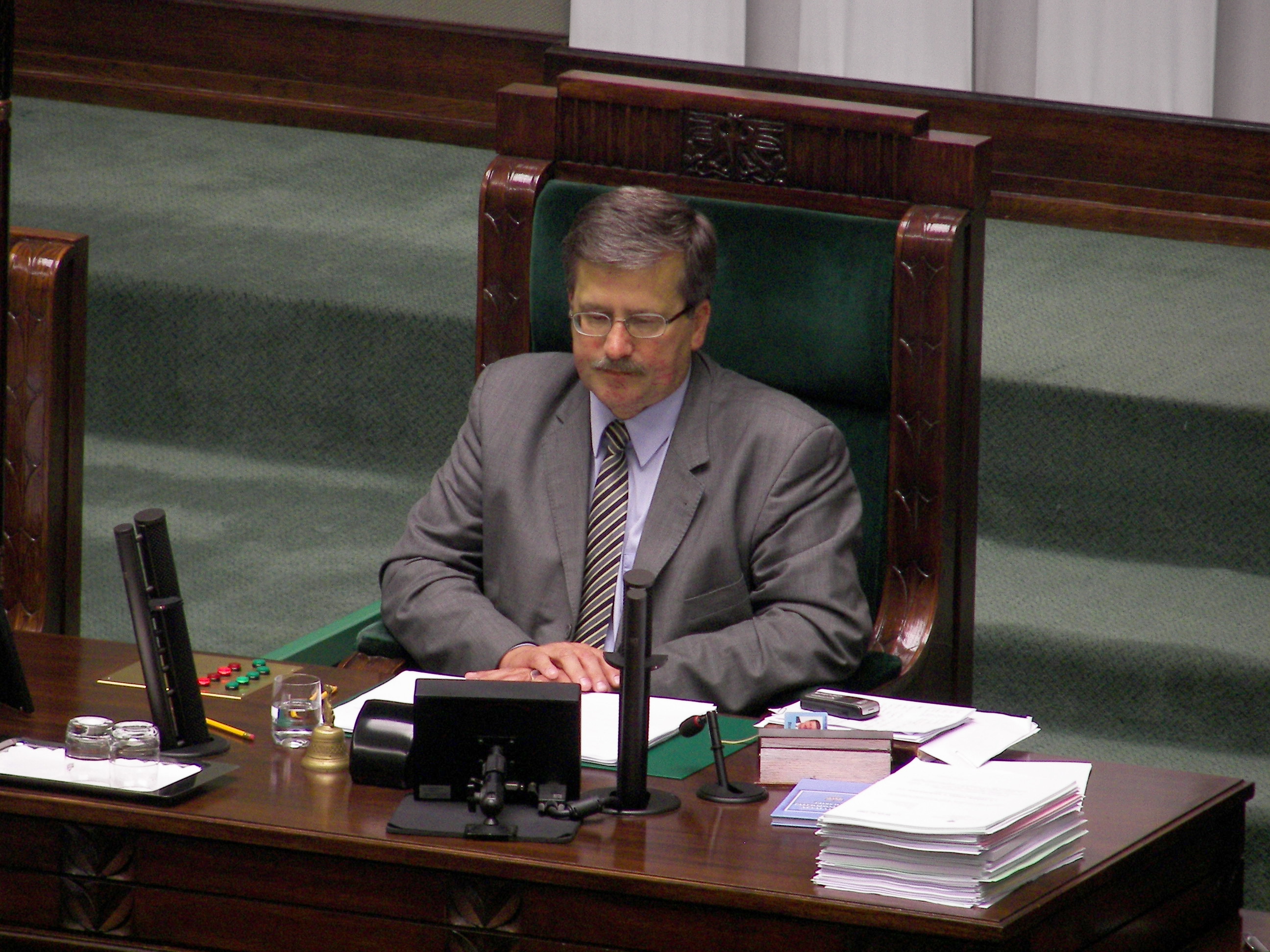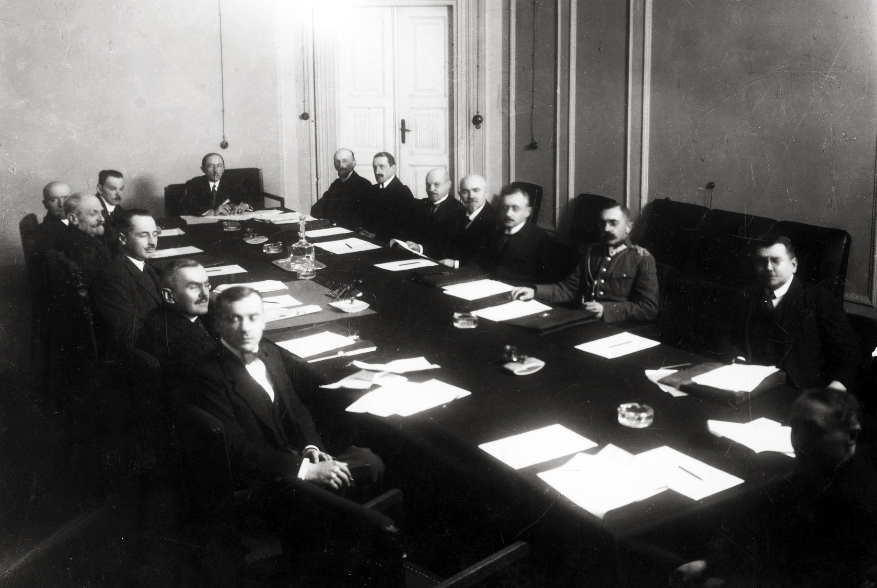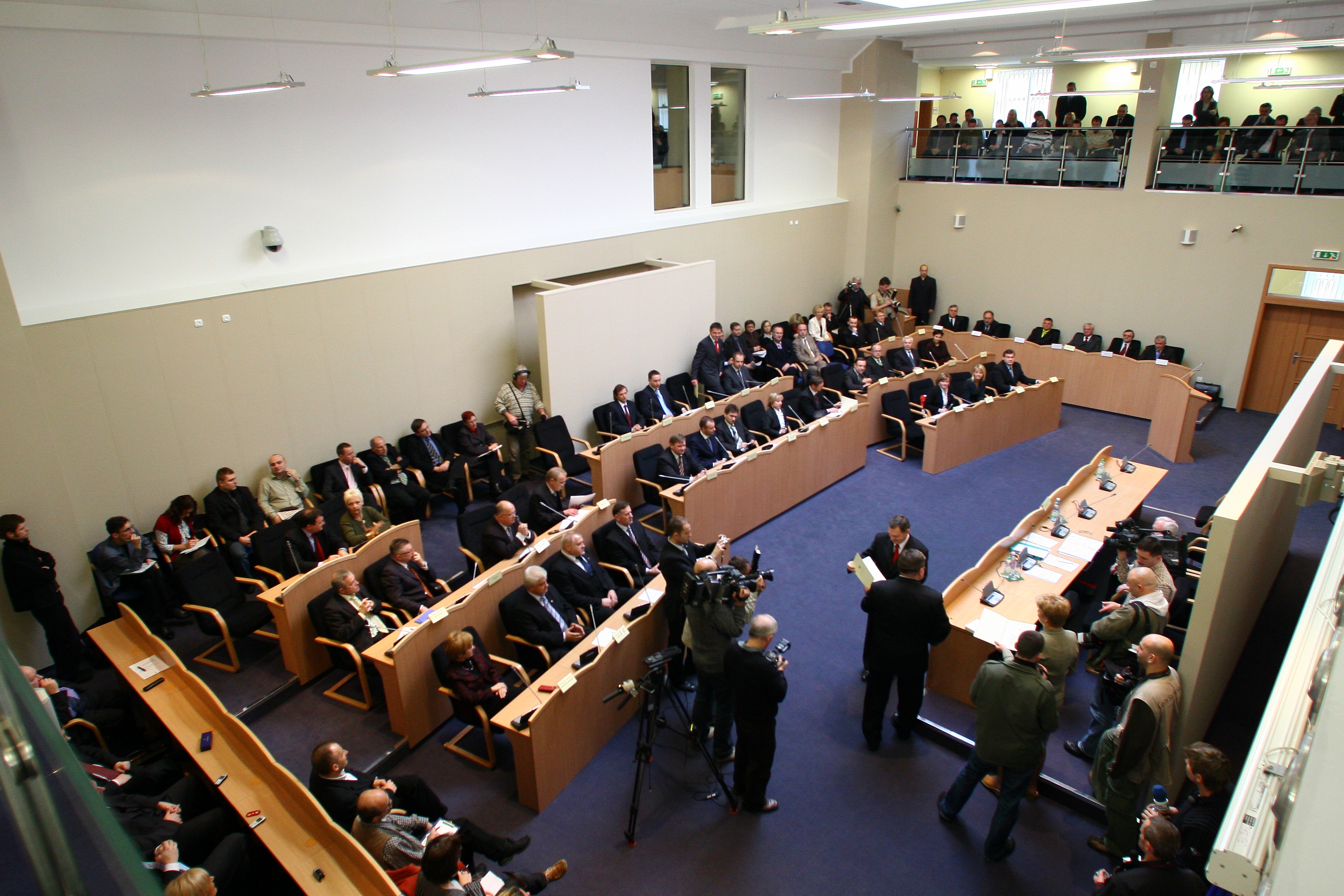|
Civic Platform (Poland)
Civic Platform ( pl, Platforma Obywatelska, PO)The party is officially the Civic Platform of the Republic of Poland (''Platforma Obywatelska Rzeczypospolitej Polskiej''). is a list of political parties in Poland, political party in Poland. It is currently led by Donald Tusk. It was formed in 2001 by splinter factions from the Solidarity Electoral Action and Freedom Union (Poland), Freedom Union, and it later placed second in the 2001 Polish parliamentary election, 2001 parliamentary election. It served in the parliamentary opposition until 2007 Polish parliamentary election, 2007, when it overtook Law and Justice, won 209 seats and Tusk was elected as Prime Minister of Poland, prime minister. Following the Smolensk air disaster in 2010, Bronisław Komorowski served as acting President of Poland, president and was 2010 Polish presidential election, elected as president in the same year. Tusk continued to serve as prime minister and leader of Civic Platform until he resigned in 201 ... [...More Info...] [...Related Items...] OR: [Wikipedia] [Google] [Baidu] |
Donald Tusk
Donald Franciszek Tusk ( , ; born 22 April 1957) is a Polish politician who was President of the European Council from 2014 to 2019. He served as the 14th Prime Minister of Poland from 2007 to 2014 and was a co-founder and leader of the Civic Platform (''Platforma Obywatelska'') political party from 2003 to 2014. On 20 November 2019, Tusk was elected as the president of the European People's Party (EPP), Europe's largest European political party, transnational political party and on 3 July 2021 he returned to Polish politics by reassuming the leadership of the Civic Platform. Tusk has been involved in Polish politics since the early 1990s, having founded several political parties and held elected office almost continuously since 1991. Tusk was one of the co-founders of the free market, free-market-orientated Liberal Democratic Congress party. He entered the Sejm (lower chamber of Poland's parliament) in 1991, but lost his seat in the 1993 election which went badly for the Congres ... [...More Info...] [...Related Items...] OR: [Wikipedia] [Google] [Baidu] |
Orange (colour)
Orange is the colour between yellow and red on the visible spectrum, spectrum of light, visible light. Human eyes perceive orange when observing light with a dominant wavelength between roughly 585 and 620 nanometres. In traditional colour theory, it is a secondary colour of pigments, produced by mixing yellow and red. In the RGB colour model, it is a tertiary colour. It is named after the orange (fruit), fruit of the same name. The orange colour of many fruits and vegetables, such as carrots, pumpkins, sweet potatoes, and Orange (fruit), oranges, comes from carotenes, a type of photosynthetic pigment. These pigments convert the light energy that the plants absorb from the Sun into chemical energy for the plants' growth. Similarly, the hues of autumn leaves are from the same pigment after chlorophyll is removed. In Europe and America, surveys show that orange is the colour most associated with amusement, the unconventional, extroversion, warmth, fire, energy, activity, danger ... [...More Info...] [...Related Items...] OR: [Wikipedia] [Google] [Baidu] |
President Of Poland
The president of Poland ( pl, Prezydent RP), officially the president of the Republic of Poland ( pl, Prezydent Rzeczypospolitej Polskiej), is the head of state of Poland. Their rights and obligations are determined in the Constitution of Poland. The president heads the executive branch. In addition, the president has a right to dissolve parliament in certain cases, can veto legislation and represents Poland in the international arena. History The first president of Poland, Gabriel Narutowicz, was sworn in as president of the Second Polish Republic on 11 December 1922. He was elected by the National Assembly (the Sejm and the Senate) under the terms of the 1921 March Constitution. Narutowicz was assassinated on 16 December 1922. Previously Józef Piłsudski had been "Chief of State" (''Naczelnik Państwa'') under the provisional Small Constitution of 1919. In 1926 Piłsudski staged the " May Coup", overthrew President Stanisław Wojciechowski and had the National Assembly elec ... [...More Info...] [...Related Items...] OR: [Wikipedia] [Google] [Baidu] |
Bronisław Komorowski
Bronisław Maria Komorowski (; born 4 June 1952) is a Polish politician and historian who served as President of Poland from 2010 to 2015. Komorowski served as Minister of Defence from 2000 to 2001. As Marshal of the Sejm, Komorowski exercised the powers and duties of head of state following the death of President Lech Kaczyński in a plane crash on 10 April 2010. Komorowski was then the governing Civic Platform party's candidate in the resulting presidential election, which he won in the second round of voting on 4 July 2010. He was sworn in as President on 6 August 2010. Komorowski thus became the second person to serve on two occasions as Polish head of state since 1918, after Maciej Rataj. On 25 May 2015, Komorowski conceded the presidency of Poland to the rival candidate Andrzej Duda, after the latter won the second round of the 2015 presidential election. Early life and education Bronisław Maria Komorowski was born in Oborniki Śląskie. Born as a son of Zygmunt Leon ... [...More Info...] [...Related Items...] OR: [Wikipedia] [Google] [Baidu] |
Smolensk Air Disaster
On 10 April 2010, a Tupolev Tu-154 aircraft operating Polish Air Force Flight 101 crashed near the Russian city of Smolensk, killing all 96 people on board. Among the victims were the president of Poland, Lech Kaczyński, and his wife, Maria, the former president of Poland in exile, Ryszard Kaczorowski, the chief of the Polish General Staff and other senior Polish military officers, the president of the National Bank of Poland, Polish Government officials, 18 members of the Polish Parliament, senior members of the Polish clergy, and relatives of victims of the Katyn massacre. The group was arriving from Warsaw to attend an event commemorating the 70th anniversary of the massacre, which took place not far from Smolensk. The pilots were attempting to land at Smolensk North Airport — a former military airbase — in thick fog, with visibility reduced to about . The aircraft descended far below the normal approach path until it struck trees, rolled, inverted and crashed into th ... [...More Info...] [...Related Items...] OR: [Wikipedia] [Google] [Baidu] |
Prime Minister Of Poland
The President of the Council of Ministers ( pl, Prezes Rady Ministrów, lit=Chairman of the Council of Ministers), colloquially referred to as the prime minister (), is the head of the cabinet and the head of government of Poland. The responsibilities and traditions of the office stem from the creation of the contemporary Polish state, and the office is defined in the Constitution of 1997. According to the Constitution, the president nominates and appoints the prime minister, who will then propose the composition of the Cabinet. Fourteen days following their appointment, the prime minister must submit a programme outlining the government's agenda to the Sejm, requiring a vote of confidence.Article 154, para. 2 Conflicts stemming from both interest and powers have arisen between the offices of President and Prime Minister in the past. The incumbent and seventeenth prime minister is Mateusz Morawiecki of the Law and Justice party. Morawiecki replaced Prime Minister Beata Szydło, ... [...More Info...] [...Related Items...] OR: [Wikipedia] [Google] [Baidu] |
Law And Justice
Law and Justice ( pl, Prawo i Sprawiedliwość , PiS) is a right-wing populist and national-conservative political party in Poland. Its chairman is Jarosław Kaczyński. It was founded in 2001 by Jarosław and Lech Kaczyński as a direct successor of the Centre Agreement after it split from the Solidarity Electoral Action (AWS). It managed to win the 2005 parliamentary and presidential elections, after which Lech became the president of Poland. It headed a parliamentary coalition with the League of Polish Families and Self-Defence of the Republic of Poland between 2005 and the 2007 election. It placed second and they remained in the parliamentary opposition until 2015. It regained the presidency in the 2015 election, and later won a majority of seats in the parliamentary election. They retained the positions following the 2019 and 2020 election. During its foundation, it sought to position itself as a centrist Christian democratic party, although shortly after, it ad ... [...More Info...] [...Related Items...] OR: [Wikipedia] [Google] [Baidu] |
2007 Polish Parliamentary Election
Parliamentary elections were held in Poland on 21 October 2007,Dieter Nohlen & Philip Stöver (2010) ''Elections in Europe: A data handbook'', p1491 after the Sejm voted for its own dissolution on 7 September. The election took place two years before the maximum tenure of four years, with the previous elections having been in September 2005. The early elections were a result of serious allegations of massive corruption on the part of Andrzej Lepper, leader of the Self-Defense of the Republic of Poland, whose party served as a junior coalition partner to the government of Prime Minister Jarosław Kaczyński. All 460 seats in the Sejm and all 100 seats in the Senate were up for election. The election was won by the largest opposition group, Civic Platform (PO), which soundly defeated the ruling Law and Justice (PiS) party and its allies. Throughout the campaign, polls showed conflicting results as to which of the two parties had the greater support, yet by the closing week the polls ... [...More Info...] [...Related Items...] OR: [Wikipedia] [Google] [Baidu] |
2001 Polish Parliamentary Election
Parliamentary elections was held in Poland on 23 September 2001 to elect deputies to both houses of the National Assembly.Dieter Nohlen & Philip Stöver (2010) ''Elections in Europe: A data handbook'', p1491 The election concluded with an overwhelming victory for the centre-left Democratic Left Alliance – Labor Union, the electoral coalition between the Democratic Left Alliance (SLD) and the Labour Union (UP), which captured 41% of the vote in the crucial lower house Sejm. The 2001 election is recognized as marking the emergence of both Civic Platform (PO) and Law and Justice (PiS) as players in Polish politics, while also witnessing the outright collapse of the Solidarity Electoral Action (AWS) and its former coalition partner, the Freedom Union (UW). Voter turnout for the 2001 election was 46.29% For this election only, list seats were allocated using the Sainte-Laguë method instead of the D'Hondt method. Background At the end of its four-year term, the ruling AWS governm ... [...More Info...] [...Related Items...] OR: [Wikipedia] [Google] [Baidu] |
List Of Political Parties In Poland
This article lists current political parties in Poland, as well as former parties dating back as far as 1918. Since 1989, Poland has had a multi-party system, with numerous competing political parties. Individual parties normally do not manage to gain power alone, and usually work with other parties to form coalition governments. The transition from a mono-party Communist regime to liberal democracy and pluralism resulted in new political parties mushrooming in the early 1990s. After the first free parliamentary elections in 1991 seats in the Sejm were divided among more than a dozen different parties (amongst them such curiosities as the Polish Beer-Lovers' Party (''Polska Partia Przyjaciół Piwa''), led by a popular comedy actor, Janusz Rewiński). The existence of so many parties in the Sejm was seen by many as being counterproductive to the effectiveness of the parliament and a hindrance towards producing stable governments. Consequently, electoral reform was undertaken and ... [...More Info...] [...Related Items...] OR: [Wikipedia] [Google] [Baidu] |
Voivodeship Sejmik
A voivodeship sejmik ( pl, sejmik województwa), also known as a provincial or regional assembly, is the regional-level elected legislature for each of the sixteen voivodeships of Poland.#Machnikowski, Machnikowski et al., p. 21 Sejmiks are elected to five-year terms, decided during nationwide Local elections in Poland, local elections. The size of the legislative assembly varies for each voivodeship depending on the population; in lower populated provinces, there are 30 members, while in the most populous (Masovian Voivodeship) there are 51 members. Elected representatives of an assembly are known as councillors (''radni''). Origins The word ''sejmik'' is a diminutive of ''sejm'', a historical term for an assembly of nobles, and is now the name of the lower house of the National Assembly of Poland, Polish National Assembly. The word ''sejmik'' was consciously chosen by lawmakers during regional reorganization reforms in the 1990s to eliminate the term ''rada wojewódzka'' (voivode ... [...More Info...] [...Related Items...] OR: [Wikipedia] [Google] [Baidu] |
European Parliament
The European Parliament (EP) is one of the legislative bodies of the European Union and one of its seven institutions. Together with the Council of the European Union (known as the Council and informally as the Council of Ministers), it adopts European legislation, following a proposal by the European Commission. The Parliament is composed of 705 members (MEPs). It represents the second-largest democratic electorate in the world (after the Parliament of India), with an electorate of 375 million eligible voters in 2009. Since 1979, the Parliament has been directly elected every five years by the citizens of the European Union through universal suffrage. Voter turnout in parliamentary elections decreased each time after 1979 until 2019, when voter turnout increased by eight percentage points, and rose above 50% for the first time since 1994. The voting age is 18 in all EU member states except for Malta and Austria, where it is 16, and Greece, where it is 17. Although the E ... [...More Info...] [...Related Items...] OR: [Wikipedia] [Google] [Baidu] |





.jpg)
_(cropped).jpg)


